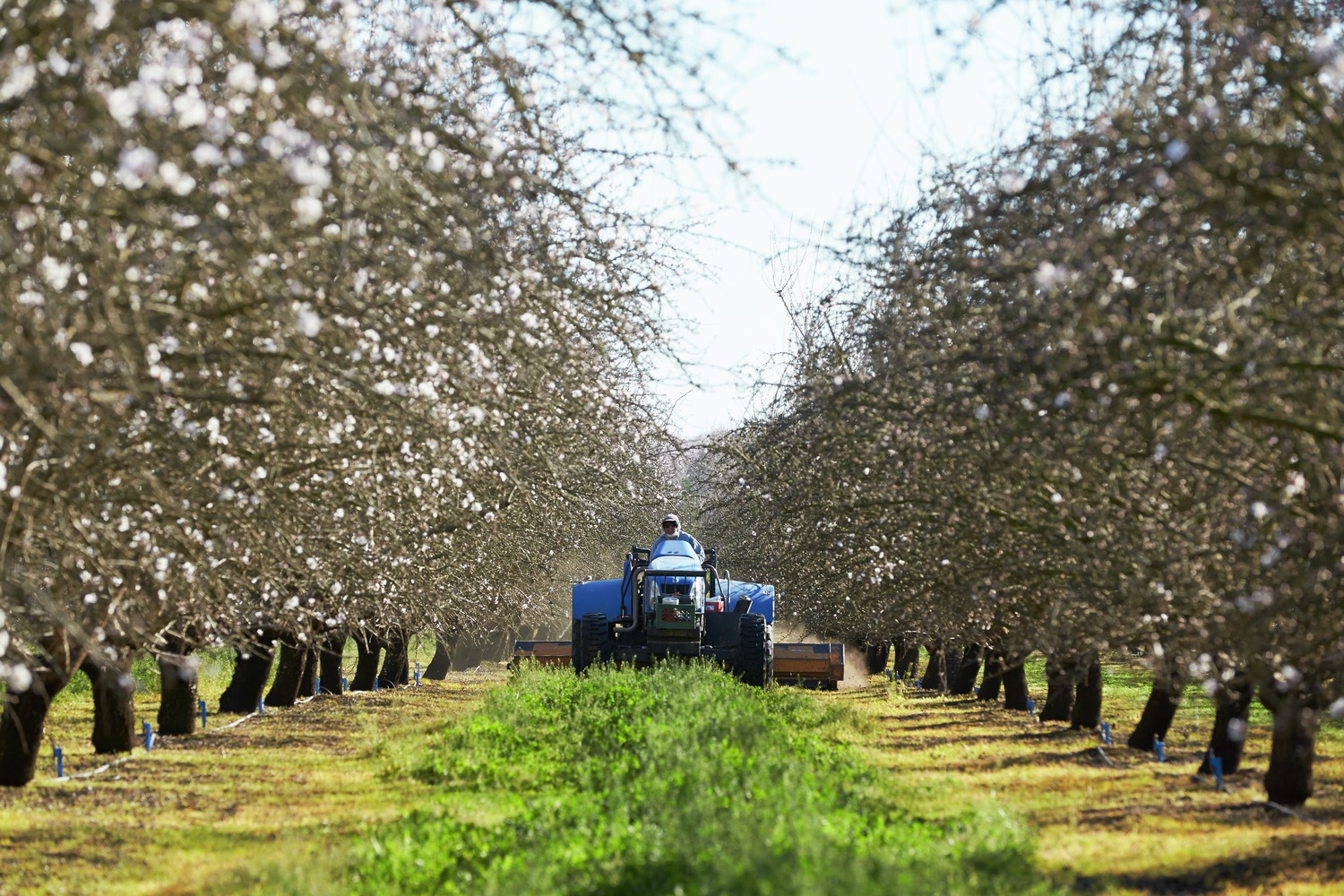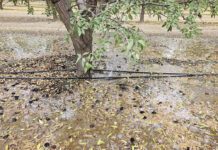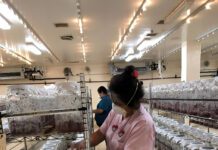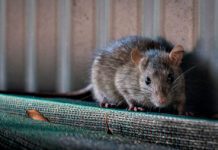
Drew Wolter had his sights set on joining the Almond Board of California (ABC) long before he was hired as the Senior Specialist in Pest Management.
As a graduate student at UC Davis, Wolter conducted research on almond production systems, much of which ABC supported, and his job with UCCE as a junior specialist in 2018 was also partially funded by ABC. These experiences gave Wolter an inside look at both ABC’s commitment to California almond growers and the broader industry as well as the people and culture that make up the organization.
He was suitably impressed.
“Since the beginning of my graduate education, I had the goal of joining the Almond Board,” Wolter said. “I really wanted to be part of a grower-oriented establishment that looks to keep growers profitable while minimizing the environmental impact of almond production.”
ABC’s Chief Scientific Officer Josette Lewis said that as part of the Almond Board’s Research and Innovation team, Wolter will play a key role in developing the next generation of Integrated Pest Management (IPM) techniques, from pest monitoring technologies that improve precision beyond calendar-based applications to biopesticides and new weed management options. He will also assist in creating outreach materials and learning opportunities that encourage grower adoption of well-tested IPM practices that underpin the industry’s Almond Orchard 2025 Goal to increase environmentally friendly pest management practices by 25%.
“Drew will spearhead our pest management research to equip growers and PCAs with the best information and tools that will support our industry in producing high-quality almonds both profitably and sustainably,” Lewis said. “He will also join ABC’s Field Outreach and Education team to help get those tools in the hands of growers.”
Tom Devol, ABC’s senior manager of Field Outreach and Education, said Wolter is a welcome addition to the team, which works closely with growers throughout the Central Valley, providing hands-on, in-orchard support as well as connecting growers with experts to address various management problems.
“Drew adds a great skillset to the Field Outreach and Education team, one that I know will be great for our growers,” Devol said. “Drew’s work with UC ANR also brings a depth of knowledge that comes from working with farm advisors across the state—his knowledge and expertise is going to be a big help to our growers in the areas of pest management and weed control.”
“Even though he just started, it feels like he has been on the team for a year,” Devol added. “He really embodies the mindset of industry service that runs through the veins of this organization.”
Delivering Pest Expertise to the Orchard
When asked what pest and weed challenges he’s most excited to take on, Wolter ticked off a long list of familiar issues for almond growers: navel orangeworm (NOW), web-spinning mites, leaf-footed bug, brown marmorated stink bug, Alternaria leaf spot, hull rot and bacterial blast.
“Our objective is to help growers and PCAs combat these pests by developing cultural and biological pest management control options, improving monitoring systems and finding innovative technology that helps our industry manage pests in ways that minimize the overall environmental impact and keep pests under economic thresholds,” Wolter said.
As an example of innovative technology up for consideration, Wolter cited the potential to use an electrostatic current to control weeds–essentially zapping weeds–as well as the use of super-heated air to control weeds, as is done in the grape industry.
He also is enthusiastic about new biological control options such as the use of peptides to control pests in the order of Lepidoptera, including NOW.
In December, Wolter received his master’s degree in horticulture and agronomy with an emphasis in weed science from UC Davis. He looks forward to sharing the knowledge he’s gained as a researcher with growers in practical ways that allow them to easily apply certain methods in their orchards.
“With my background in ecology, I look at the biology of the pest together with the environment and crop to add new approaches to the tried-and-true conventional tools for pest management in almond orchards,” Wolter said. “Further, my specific background in weed science will help our ABC team find new ways of thinking about orchard floor management by focusing on the biology and phenology of weed species while simultaneously looking to introduce technology and/or products that minimizes the use of conventional herbicides.”
While some common applications used to control weeds – specifically, glyphosate and glufosinate – face growing regulatory scrutiny in the U.S. and abroad, Wolter is looking forward to assisting growers in finding alternatives that are effective and affordable. In fact, Wolter has already hosted a webinar on post-harvest weed management that provided growers with insights into how to create their own Integrated Weed Management plans and effectively scout for weeds.
“Proof of concept is key, from a management and efficacy perspective, and an economic perspective,” Wolter said. “In my time at the Cooperative Extension, I spent a lot of time working with growers – that was the most exciting part of my job – and I look forward to doing so again in this role, helping growers find solutions that are best suited for their individual orchards.”
At The Almond Conference 2020, Wolter hosted a panel discussion on weed control, during which he provided detailed information on how to create weed control goals for each orchard, how weed management fits into the bigger picture of an orchard’s IPM strategy and more. Growers interested to view a recording of this session are invited to access “The Almond Conference 2020” video playlist on ABC’s YouTube channel. All recorded Conference sessions are available in this playlist.
















